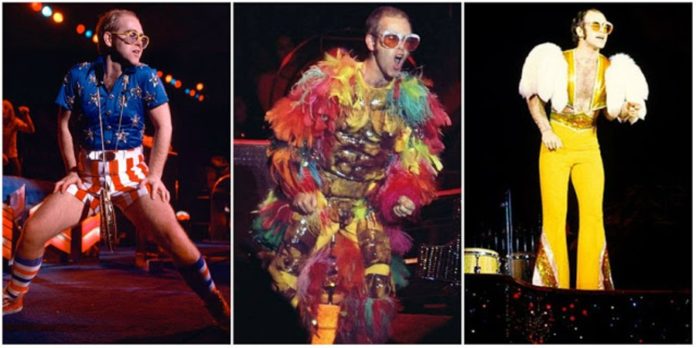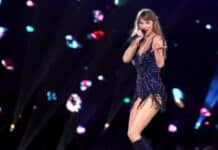
Society today allows the LGBTQIA+ community to be loud, proud, and present, and queer aesthetic is a significant part of modern culture.
We have experienced fabulous content from fashion designers, artists, and musicians.
Sound of Music
The fashion industry is not the only platform where the LGBTQIA+ community can be true and expressive about sexuality and gender identities.
There are numerous artists and songwriters across different genres from the LGBTQ community whose musical work continues to expand the visibility outside and inside the community.
Here are three genres where most queer artists have found their safe space;
1. The Blues (up to the early 20th century)
The blues are popularly linked to the Black community, but it is a genre that most LGBTQ people have fallen back to, especially queer women.
Other than a platform for expressing overt sexuality, a lot of artists were using the blues to challenge the ideas of femininity the US had in the early 20th century. As the years progressed, it became a safe space for LGBTQ composers, producers, and artists such as Francis Faye, Billy Strayhorn, and Jackie Shane.
2. Electronic, House, and Disco (since the 70s)
This genre of music highlights the emergence of the queer community in the music industry. While rock and pop music has become mainstream, the disco culture marked the sexual revolution of the 60s-80s. This culture directly influenced the pioneering of queer artists.
Sexual independence and gender fluidity were becoming more apparent. This allowed artists such as David Bowie to exist in the way they did. The ambiguity of their sexuality created a safe platform for queer musical artists.
This music genre supported a large queer community. It was a common genre in underground gay clubs in New York, Chicago, and Los Angeles.
3. Punk – 60s-90s
Coming into prominence during the sixties, punk is a music genre that inherently questions and rejects societal norms. As such, the LGBTQ community finds punk music as a safe place for them to explore themselves, their sexuality, and their identity.
The Riot Grrl movement of the 2000s was a celebration of women’s sexuality that normalized their anger. During this time, Queercore bands were reclaiming the LGBTQ language with songs like ‘Man Enough To Be A Woman.’ ‘Rebel Girl’ is a celebration of all women who are not afraid to live their truth. The Sista Grrl Riots were created for the BIPOC and Black women. They felt excluded by the first movement, which mainly consisted of white women. On Taimi wiki, you can find more about queer-based movements and riots.
3 Famous Musicians Who Are Queer
1. Elton John
Elton is from an era where homosexuality was heavily frowned upon, which never kept him from living his truth. Although he was married thrice before, he never came out as gay until he was 45. coming out was never an issue for Elton because he lived an openly gay lifestyle.
Unlike most entertainers o his time, Elton didn’t think being gay would affect his career, but it did. Americans were burning his records, and radio stations did not play his music.
As one of the most openly gay musicians, Elton is now an LGBTQ icon and advocate. In 1992, he founded the Elton John AIDS Foundation to help fight the disease severely affecting the queer community, including his close friends, Freddie Mercury and Ryan White. Besides raising funds and awareness, Elton and his partner David advocate for same-sex marriages.
2. Frank Ocean
Frank is lucky to be of an open-minded, more acceptable generation to the queer community. Frank came out on his Tumblr platform after releasing his Endless visual album. This makes him the first Black Hip-hop and R&B to be openly gay.
Most artists congratulated rank for his honesty and courage. Simmons commended Frank for going public with his sexuality. It gives light and hope to the younger generation still afraid of their identities.
Working in an industry that is plagued with homophobia, Frank received immense support from the hip-hop community.
However, such news has never gone without some form of criticism. Although his revelation was sincere, there are claims that Frank Ocean came out as a publicity stunt for his album release. Regardless, Frank is a personality that has carved his niche in a very homophobic industry, and he has proven love does not know the gender.
3. Hayley Kiyoko
Ever since the release of ‘Girls Like Girls,’ Hayley has made it her mission to advocate for queer love. As a lesbian, Hayley believes that love is beautiful, whether queer or not. She is grateful to her audience and fans for making her comfortable and true to herself.
Hayley came out to her song’s co-writer, Lily Young, saying she wanted to write a song about stealing someone’s girl. She did not receive any judgment or labels for her sexuality. With over 90 million views on the song and overwhelming comments from her fans, Kiyoko knew that she was free to live her truth.
Conclusion
Many artists choose to hide their sexuality for fear of being ostracized and ruining their careers. While this might not be irrational, it helps live in a more accepting society, and queer people can be loud and proud of their truth. Everyone deserves to love and be loved, and gender should never stop you from experiencing it all.








